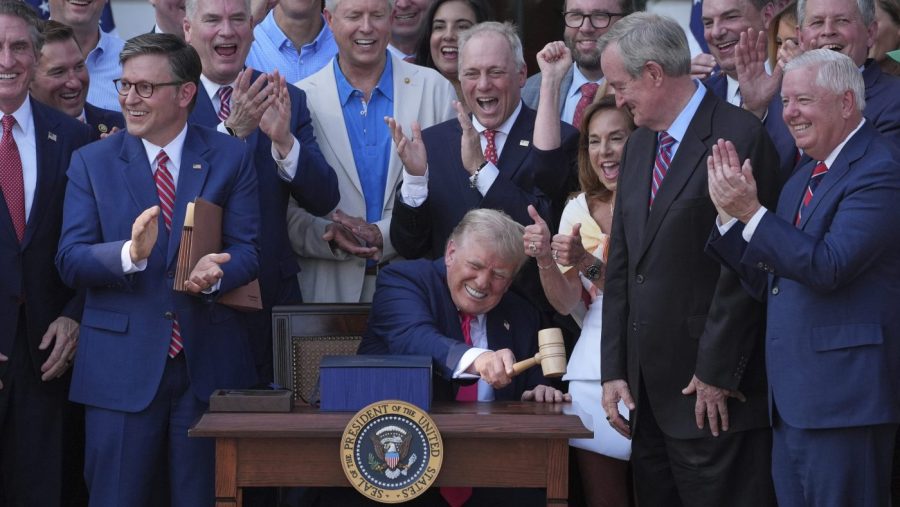Trump Enacts 'Big, Beautiful' Law

Trump Signs Sweeping Reconciliation Bill Into Law Amid Fourth of July Celebrations
On a historic Fourth of July, President Donald Trump signed into law a sweeping reconciliation package that promises to reshape key aspects of U.S. fiscal and social policy. The legislation, which had been the subject of intense negotiations for months, marks one of the most significant legislative achievements of his second term.
The signing ceremony took place at a military family picnic on the White House South Lawn, an event attended by First Lady Melania Trump, top Cabinet officials, and prominent Republican lawmakers including Speaker Mike Johnson, House Majority Leader Steve Scalise, and Rep. Jason Smith. In a dramatic display of military might, two B-2 bombers conducted a flyover during the event — a symbolic gesture underscoring recent foreign policy actions against Iranian nuclear facilities.
“This is a triumph of democracy on the birthday of democracy,” Trump declared from the presidential balcony. “We made promises, and we kept them.”
Legislative Challenges Overcome
Final passage of the bill came after a tense week in Congress. The Senate narrowly approved its version early Tuesday morning, with Vice President Vance casting the tie-breaking vote after three Republicans opposed it. Hours later, the House followed suit in a dramatic procedural vote that stretched late into Thursday afternoon. Two Republicans broke party lines in the final 218-214 tally.
The reconciliation process allowed the GOP to bypass filibuster threats in the Senate, though not without significant internal friction. One of the most contentious provisions involved the state and local tax (SALT) deduction cap — a major sticking point throughout negotiations. Ultimately, the compromise included increases to SALT deductions while eliminating taxes on tipped wages.
Key Provisions in the Legislation
The final package includes several core elements from Trump’s 2024 campaign platform:
- Tax Policy: Extends the 2017 tax cuts set to expire this year.
- Border Security: Allocates $150 billion toward border wall construction, immigration enforcement and deportation operations.
- Defense Spending: Includes another $150 billion boost for defense priorities, notably funding a controversial "Golden Dome" missile defense initiative.
- Energy Policy: Reduces green energy incentives while promoting domestic production of fossil fuels.
- Debt Ceiling: Raises the federal debt ceiling by $5 trillion, preventing an imminent default crisis.
However, the bill has drawn sharp criticism for its reductions to Medicaid and other low-income health and nutrition programs. Democrats argue these cuts disproportionately affect vulnerable populations and will result in millions losing healthcare coverage.
House Minority Leader Hakeem Jeffries delivered what was described as a marathon speech Friday, condemning the legislation as harmful to working families. Trump dismissed these concerns, calling Democratic opposition a "con job."
Political Implications
White House officials remain confident public opinion will shift in favor of the bill once constituents better understand its contents. Despite current polling showing mixed support, administration spokespeople maintain that the long-term economic benefits justify short-term adjustments.
For Trump, the signing represents the culmination of what he described as “the most successful almost six months” of any presidency. He pointed to recent foreign policy successes, robust job growth, and historically low southern border apprehensions as evidence of strong leadership performance.
As the nation digests this landmark legislation, the political battle over its legacy appears far from over. With midterm elections approaching and policy impacts yet to unfold, both parties are already preparing their messaging strategies for the 2026 campaign season.
Post a Comment for "Trump Enacts 'Big, Beautiful' Law"
Post a Comment